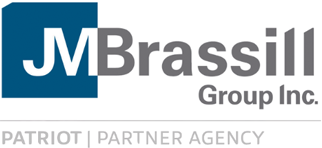 OSHA released a preliminary list of its top 10 cited workplace safety violations for fiscal year 2018 (Oct. 1, 2017 – Sept. 30, 2018) last week at the National Safety Council Congress and Expo in Houston.
OSHA released a preliminary list of its top 10 cited workplace safety violations for fiscal year 2018 (Oct. 1, 2017 – Sept. 30, 2018) last week at the National Safety Council Congress and Expo in Houston.Patrick Kapust, deputy director of OHSA’s Directorate of Enforcement Programs, presented the list, encouraging employers to use it as a guide when developing safety programs. While the list does not vary much from year to year, there was one newcomer – eye and face protection.
Fall protection general requirement citations remained at the top of the list for the fifth straight year with 7,270 violations, the bulk of them coming from building sites, where approximately half of OSHA’s 30,000-plus fiscal year 2018 inspections occurred. OSHA fall protection standards require construction workers exposed to falls of six feet or more to wear protective gear such as harnesses, or to be protected by guardrails, and to be trained on how to avoid falling.
The preliminary top 10 2018 OHSA violations are:
- Fall Protection – General Requirements: 7,270
- Hazard Communication: 4,552
- Scaffolding: 3,336
- Respiratory Protection: 3,118
- Lockout/Tagout: 2,944
- Ladders: 2,812
- Powered Industrial Trucks: 2,294
- Fall Protection – Training Requirements: 1,982
- Machine Guarding: 1,972
- Eye and Face Protection: 1,536
Under the OSH Act, employers are responsible for providing a safe workplace for their employees. OSHA publishes this list annually to help employers take steps to find and fix recognized hazards before preventable injuries and illnesses occur or OSHA shows up. Final results, when published, will be available on OSHA’s website.
What Employers Should Do Now
In light of this information, now is a good time to take a look at your safety practices to prepare for the new year. This could include:
- Reviewing 2018 location accidents, investigations, and follow-up actions taken to prevent future occurrences.
- Evaluating your safety protocols with federal and state OSHA requirements.
- Refreshing your team training regarding preventable accidents and special equipment safety requirements.
- Updating your safety records.
Originally posted on thinkhr.com



